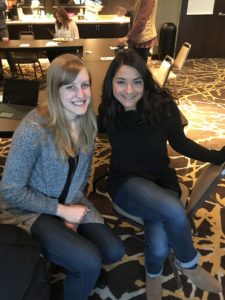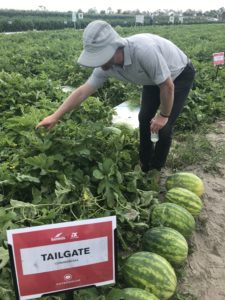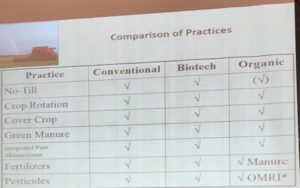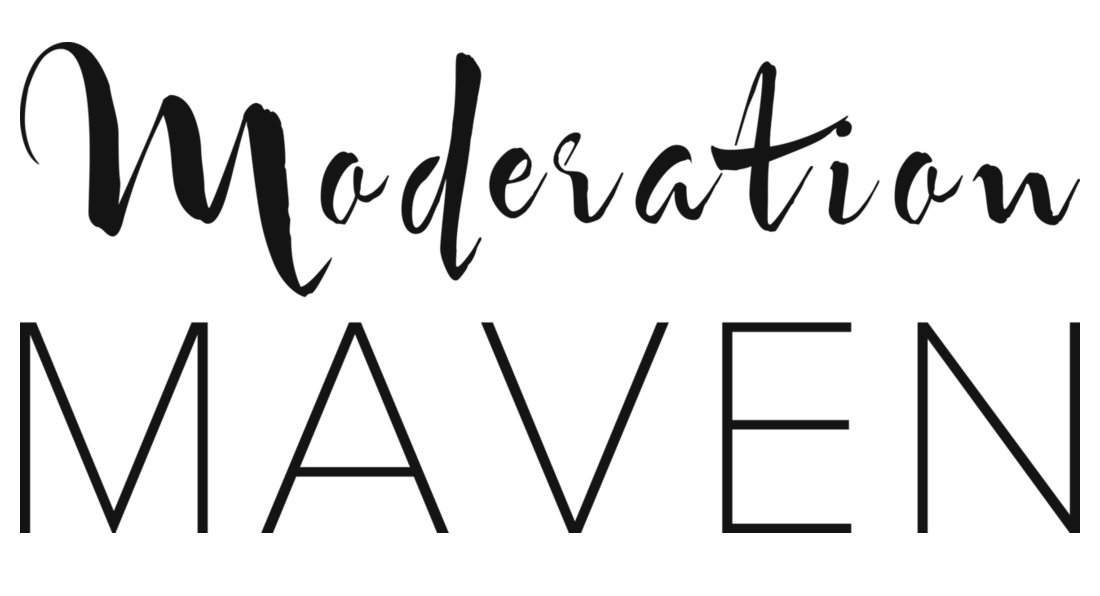When your mom says you’ve positioned yourself as a “shill” for Monsanto, you might have an image problem. I’ve always been forthright and maybe even annoyingly overexcited about filling in my friends, family, and social networks on my consulting activities, but that comment made me realize that maaaaybe I’ve left too much up to the imagination.
We want transparency in everything these days. We want to know where and how our food is grown and who actually grew it. Many of us want to know that it was produced responsibly and with fair business practices. The term “industry” conjures up negative images of back-door dealings, greedy corporate executives, and shady goings-on all in the name of profit.
It’s no wonder Linda (hi, Mom!) has questions about what being paid by Monsanto – which was actually bought by Bayer – entails. What business do dietitians have working with “Big Ag” and “Big Food”?
Well, I’m going to demystify it and tell you exactly what is in my contract as part of the L.E.A.D. (Leaders Engaged in Advancing the Dialogue) Network. Before I do, it’s important to know that I am not employed by Bayer CropScience. You could argue that being paid by Bayer makes me an employee, but I am paid for my consulting services and my expertise. I am not an official representative of the company.
As part of the Network, I provide outreach and have conversations with consumers. Unfortunately, classes in crop- and animal sciences are not required across the board for dietetics students, so we also focus on sharing information with other registered dietitians who have questions about modern agriculture.
That being said, here is what our agreement includes:
1: Fully disclose that I’m part of the L.E.A.D. Network for all appearances, presentations, segments, etc. Well hello, ethics! Disclosure is really important for transparency. I’m happy (and required!) to share that I consult with Bayer CropScience even though it raises questions. I get it – it’s totally normal to question the motive when there’s money and possibly an agenda behind the message.
I recently attended a Table Talk communications workshop with Michele Payn (author of “No More Food Fights,” “Food Truths from Farm to Table”) and she said something that really resonated with me – “my ethics come before my paycheck.” I was like YES – so true! I have morals and if any part of my consulting gave me that icky feeling that something wasn’t right about it, I wouldn’t participate. I have a day job, I don’t need to do this. I want to, and I enjoy it!

2: Attend a monthly conference call with other members of the L.E.A.D. Network. This may be used as an opportunity to just check in and share what we’ve been working on, but oftentimes we provide feedback on presentations – whether the information is clear or not, what other questions or issues should be addressed, and so on. For example, this past September we heard a webinar on risk communication given by Dr. Cami Ryan, Social Sciences Lead with Bayer CropScience.
3: Provide strategic counsel regarding issues in food, agriculture, and nutrition. Giving feedback on presentations is one way this is achieved. By working with the public and other dietitians, we also get a pulse on their concerns and share this within the Network, which informs future outreach.

4: Engage in high-impact media and social media outreach on food, agriculture, nutrition, and health issues. Examples include blogs/columns, Facebook posts, tweeting, by-line articles, serving as an interview source. If you follow me on social media, you know I share information about agricultural issues fairly often, and I like to write about them on this blog.
IMPORTANT: Bayer does not require that I send any of my work to them in advance, nor do they tell me what to say. My contacts will provide resources if I ask, and they’re usually a mix of Bayer and non-Bayer information.
5: Participate in and/or coordinate one direct engagement opportunity per year. This may include being part of a panel, booth staffing at the Food and Nutrition Conference and Expo (FNCE), presenting at dietetic association meetings, providing webinars, etc. So far this year, I’ve checked off the box by presenting a webinar for the Wichita Dietetic Association titled “Critical Conversations: Standing for Science in a Sensationalist World.” I’ve also submitted a few conference proposals (crossing my fingers!).
6: Participate in in-person educational training and immersion experiences.

This just means we attend continuing education opportunities to be better prepared to answer people’s questions. Before I was officially part of the Network, I participated in an immersion experience where we traveled to Maryland and learned all about sustainability in agriculture over 3 days. We visited both conventional and organic farms, heard about pesticides, bee health, and more. Some of the presentations were given by Bayer (still Monsanto at the time) employees, some were not.
So that’s it! It’s really not that sexy. Of course, other consulting gigs might be set up differently, but this is what mine looks like.
Surprised? Confused? Other reactions? I’d love to hear your thoughts!

